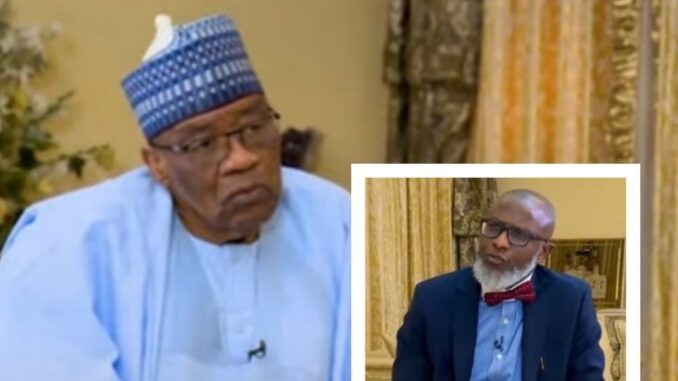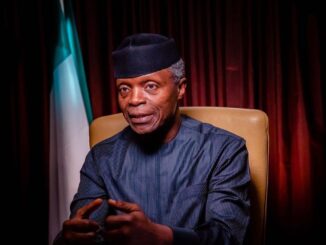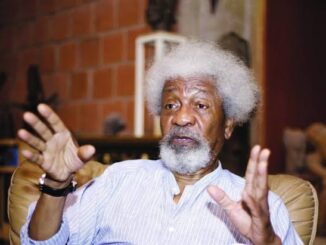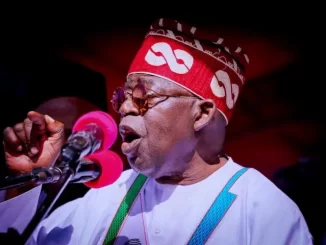
• Regrets past military disruption of democratic process
In the face of the economic hardship being experienced by many Nigerians, former Military Head of State, Ibrahim Babangida popularly known as IBB, has stressed the significance of involving the Nigerian populace in the decision-making process of the government, advising President Bola Tinubu to carry the citizenry along on his policy decisions for more effective implementation.
Featuring on the fourth edition of Channels TV’s “Inside Sources” anchored by foremost journalist and a former presidential aide, Laolu Akande, on Friday, January 12, 2024, the elder statesman, shared his valuable insights on diverse issues affecting the country.
Babangida emphasized the need for President Tinubu to clearly articulate his policies, outlining their objectives, benefits, and potential challenges.
By doing so, the former military ruler argued, the president would have built trust and understanding among the Nigerian people, fostering a conducive environment for the successful implementation of his agenda.
“A lot of things in an economic situation is to take a decision because you know it is the right thing to do. Some people may not agree which is natural especially as far as Nigeria is concerned. My only advice is they should do more talking to the people so that everybody understands,” Babaginda stated.
Fostering a sense of belonging and inclusivity, Babangida argued that the president could rally Nigerians behind his policies by engaging the media, maintaining open channels of communication and providing regular updates on policy developments.
“Unless a lot of talking is being done, arranging programmes on television and radio has been very very effective, people understand. So, if you come and then take the decision finally, you have no problem because you have talked about it,” IBB stated.
When asked if the intermittent military involvement in politics was the major cause of Nigeria’s failure to implement a workable federal system of government, in a candid and introspective manner, the former military ruler conceded that it played a great role and described that era as an aberration that should never have happened.
Giving his perspective on his personal reflections on the consequences of military rule, Babaginda expressed deep regret over the military interventions that disrupted Nigeria’s democratic process.
He acknowledged that the military incursions in the country hampered Nigeria’s progress toward a stable and flourishing democracy and in proffering solutions, stressed the importance of continuity, stability, and adherence to democratic principles as key drivers for sustainable development.
His words, “I think that is one of the effects of the aberration of the military regime, it tempered with the democratic process. Such things happened but I believe it wouldn’t happen again because the Nigerians are becoming more interested in becoming a truly democratic nation, at least, in Africa and I don’t think such a thing will happen,” he said.
When pressed further to give his view on whether the successive military governments were responsible for the country’s slow economic development, Babaginda said, “I think the military like we earlier talked about, we consulted same Nigerians on the economy and most of them if you recall in the 70s, a lot of reforms that were done handed over certain enterprises back to the people.”
Continuing, he said, “So it started with the military really and when we came, we did the Structural Adjustment Programme, (SAP) where we got the civil society involved in the economic management team and government no longer get interested in running an agricultural farms and something like that and allowed people to do it themselves.”
ALSO READ: laoluHow Tinubu can really cut down govt costs, by ex-presidential aide Laolu Akande
“We freed the economy, we allowed the private sector to be the hub of the economic development of the Country,” Babaginda said.
The former military head of state also shares his thoughts on the subject of restructuring, he said, “In 1989 we set up a committee on devolution of powers and under late Alhaji Abdul Rahman Okene, he looked at that. This is because we are thinking at that time how we would get the federation structured even though as a military regime then but we are thinking about it.”
He added, “I believe in restructuring if it means devolution of powers to the states. To give them more powers. That means we give them more resources to run their own affairs. So that we run a federal government the way federation is run all around the world,” IBB concluded.




